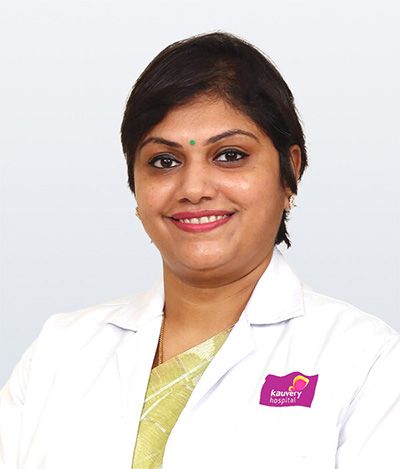
“Communities and countries are only as strong as the health of their women” – Michelle Obama.
Women are the core of any system and as much as they are vital, they are the most negligent of their health. In India, societal pressures and circumstances push women’s health to take a backseat compared to their family members. Working women have the additional burden of managing their careers and their homes.
Some of the common problems we come across are skipping meals – especially breakfast, multi-tasking which leads to stress, anxiety and depression, fasting, ignoring symptoms or shyness in discussing certain problems and taking quick fix over-the-counter (OTC) medications instead of seeking professional help.
Women are also more prone to certain gastrointestinal (GI) and liver issues than men, owing to hormonal fluctuations, pregnancy and childbirth. Higher incidence of gallstone diseases, gastroesophageal reflux disease, peptic ulcer disease and irritable bowel syndrome (IBS) is noted. Fatty liver (metabolic-associated) is becoming alarmingly common in women. Although the prevalence of alcohol consumption and alcohol-related liver diseases is low in women, the disease tends to be more severe with rapid progression to cirrhosis. Autoimmune liver diseases, like primary biliary cirrhosis, tend to have a higher prevalence in women genetically.
It is important to understand the differences in the way the GI tract works in men and women which may be associated with some of the gender-specific problems. A woman’s unique experience starts with the tongue and more women can be classified as ‘supertasters’ – they are able to taste bitter and sweet food more strongly than men and don’t need much quantity to determine the same. This increased sensitivity to food is reflected throughout the GI tract. Although women experience more heartburn and acid reflux, they tend to have less damage to the esophagus as they secrete less acid. However, they are more sensitive to irritants and experience heartburn strongly. Women also seem to have a slower gastric and colon emptying time, which is why they experience nausea, bloating and constipation more frequently. Many women use OTC medications and NSAIDs more freely which only contributes to gastritis. Similarly, women have a slower gallbladder emptying time which predisposes them twice as much to gallstones. This effect is exaggerated during pregnancy due to hormones. IBS is 2 to 6 times more common in women which again boils down to the increased sensitive nature of the gut.
Additionally, a sedentary lifestyle does more harm. Inability to find time to exercise, confusing housework as equivalent to physical exercise, general lack of motivation and weight gain during pregnancy are some of the problems faced by women at large. Lack of focused physical activity leads to obesity, particularly abdominal fat, leading to various metabolic disorders like diabetes mellitus, dyslipidaemia and hypertension.
During pregnancy, increased progesterone levels influence further delays in intestinal emptying, aggravating nausea, heartburn and constipation. Intrahepatic cholestasis of pregnancy is a unique liver disorder occurring during the second trimester which resolves post-birth.
Women do have some amazing natural advantages too. Breastfeeding aids weight loss, and reduces the risk of hypertension, breast cancer, ovarian cancer and post-partum depression. The protective effect of the estrogen hormone reduces incidences of heart attacks and strokes.
Most of the gut and liver problems can be avoided by following a well-balanced nutritious diet, small frequent meals at regular intervals and avoiding skipping of meals. Allocating at least 30 – 40 minutes daily for regular physical activity is crucial. Women above 45 years of age must be educated about gender-specific gut and liver problems and motivated to seek help early. Work-life balance must be given importance too. Warning signs like abdomen pain, vomiting, bleeding per rectum, black stools, weight loss, anemia and jaundice must definitely not be ignored. Regular yearly health check-ups will help to a very large extent in early diagnosis.
In summary, a woman’s health is her capital and it needs to be the front and center focus.

Dr. Swati Raju
Consultant – Medical Gastroenterology, Hepatology and Transplant Hepatology,
Kauvery Hospital, Chennai

